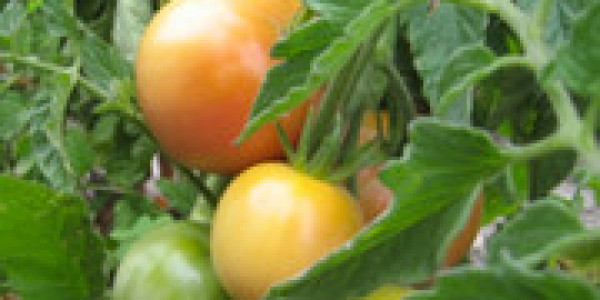Taylor Scott International News
September 3, 2013 Drought conditions and hot summer months are pushing many California farmers toward dry farming — and producing more flavorful produce , NPR reports. Happy Boy Farms sales director Jen Lynne says chefs and wholesalers from around the US are increasingly placing orders for the company’s dry-farmed tomatoes, grown near Santa Cruz. She tells NPR that she could sell hundreds of 14-pound cases a day if her 10-acre tomato field could meet the demand. Lynne says dry farming will become a vital sustainable agriculture practice as water becomes less abundant in the future. Whole Foods Market in Sebastopol says customers want dry-farmed tomatoes, NPR reports. However, according to Northern California farmer Stan Devoto, turning off the water does reduce yields. His dry-farmed trees produce 12 to 15 tons of apples per acre per year compared to his irrigated trees, which produce 40 to 50 tons, NPR says. Sonoma Valley winery Old Hill Ranch says dry farming wine grapes produces only slightly lower harvest yields. Winemaker Will Bucklin tells NPR that the grapes are smaller, which means a lower juice-to-skin ratio. Meanwhile, farmers in the Texas Panhandle, squeezed for water by a three-year drought and a declining Ogallalla Aquifer, are experimenting with planting corn without watering the ground first. They are planting later in the season so they can tap the summer rain and switching to pivot sprinklers for more efficient, affordable watering. In other farming news, Nicholasville, Ky.-based animal nutrition company Alltech and Kentucky State University have formed a joint research alliance to develop sustainable farming techniques and modern farming models. Alltech will invest $75,000 per year toward research at KSU and will also provide support for KSU graduate students’ research and for demonstrations in agriculture, food sciences, sustainable systems and related fields. Alltech chief scientific officer Dr. Karl Dawson says the farming alliance aims to position Central Kentucky at the forefront of sustainable agriculture and aquaculture and will have global implications. The Alltech-KSU Sustainable Farming Alliance will operate from the KSU campus and has been established for an initial period of three years. Environmental hazards such as climate change and water scarcity could wipe out as much as $8 trillion in agriculture assets each year, according to a study published last month by the University of Oxford’s Smith School of Enterprise and the Environment. Photo Credit: Happy Boy Farms Taylor Scott International
Taylor Scott International, Taylor Scott








